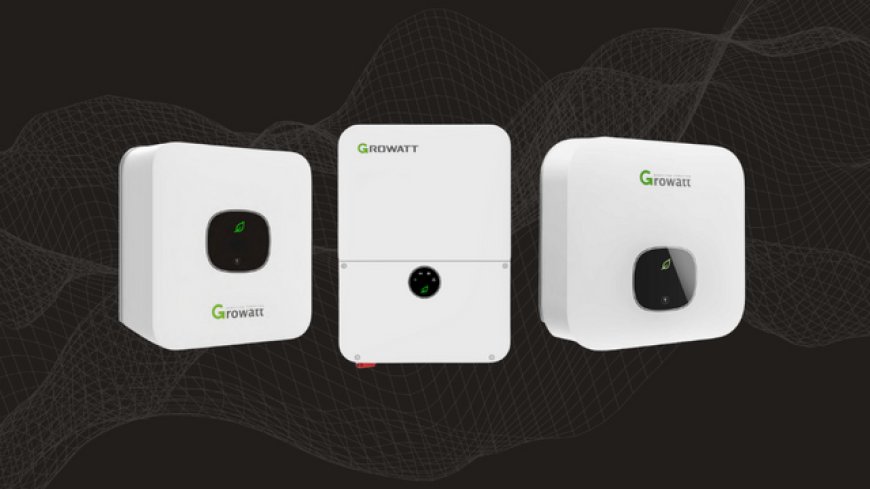What Is A Grid-Tied Inverter?
Purchasing your first solar system can be both exciting and daunting. Consider a grid-tied system to make that initial experience more approachable.

Purchasing your first solar system can be both exciting and daunting. Consider a grid-tied system to make that initial experience more approachable. Grid-tied systems are not only great for beginners, but often more cost-effective than other types of systems. At the heart of that system is, of course, your grid-tie inverter. In this blog, we will delve into the details of grid-tied inverters, exploring what they are, how they work, their advantages, and why they play a pivotal role in the transition to renewable energy.
What Exactly Is a Grid-Tied Inverter?
A grid-tied inverter, also known as a grid-connected or on-grid inverter, is the linchpin that connects your solar panels to the utility grid. Its primary function is to convert the direct current (DC) electricity generated by your solar panels into alternating current (AC) electricity that can be used to power your home or business. But what sets grid-tied inverters apart from other types of inverters?
The Symbiotic Connection with the Utility Grid
The key feature that defines grid-tied inverters is their seamless integration with the utility grid. Unlike off-grid inverters, grid-tied inverters do not require energy storage solutions like batteries. Instead, they synchronize with the grid, allowing surplus electricity generated by your solar panels to flow back into the grid. This surplus energy is credited to your account, effectively "spinning your electric meter backward" during sunny days, ultimately reducing your electricity bill.
Modes of Operation: How Grid-Tied Inverters Adapt
Grid-tied inverters are known for their adaptive and seamless operation. Unlike other types of inverters, which may require manual switching between modes, grid-tied inverters work continuously and automatically, optimizing your solar system's performance.
During sunny days when your solar panels are generating electricity, the grid-tied inverter converts the direct current (DC) electricity into alternating current (AC) for immediate use in your home. Any surplus energy beyond your immediate needs is seamlessly fed back into the grid, accumulating energy credits.
While solar power has priority, the grid bypasses the inverter to power loads directly if solar is insufficient. This function happens automatically and seamlessly providing you with reliable power even when production is low. By combining these functions into a single adaptive mode, grid-tied inverters deliver a hassle-free experience, making the most of solar power while maintaining uninterrupted power supply.
Advantages of Grid-Tied Inverters
Grid-tied inverters come with a host of advantages that make them a popular choice for many solar enthusiasts:
- Cost-Effective: Grid-tied systems are often more cost-effective to install than off-grid or hybrid systems, as they eliminate the need for expensive battery banks.
- Reduced Electricity Bills: By generating your electricity and selling excess energy back to the grid, grid-tied systems can significantly reduce your monthly electricity bills.
- Low Maintenance: Grid-tied inverters require minimal maintenance compared to off-grid systems with batteries, making them an efficient choice for homeowners.
- Sustainability: By using renewable solar power, grid-tied systems contribute to a greener planet by reducing your carbon footprint.
Are There Any Drawbacks?
While grid-tied inverters offer numerous benefits, they are not without limitations. The primary drawback is their dependency on the grid. If the grid experiences an outage, most grid-tied systems will automatically shut down for safety reasons. However, this issue can be mitigated with the addition of battery backup systems or hybrid inverters.
Making the Right Choice
In conclusion, grid-tied inverters are an excellent choice for modern solar power systems, enabling homeowners and businesses to harness the sun's energy efficiently and cost-effectively. Their seamless integration with the grid makes them a smart choice for those looking to reduce their electricity bills and contribute to a sustainable future.
When considering a solar system, it's crucial to assess your energy needs, budget, and goals. If you're looking to maximize savings and minimize your upfront cost while staying connected to the grid, a grid-tied inverter is the perfect choice for you. As with any major decision, consulting with solar professionals can help you determine the ideal system for your unique needs.
At Signature Solar, we're here to assist you in making informed decisions about your solar journey. Feel free to reach out to our Design Team, and let's explore the possibilities of clean, renewable energy together. The sun's potential is limitless, and with a grid-tied inverter, you can tap into its boundless power while contributing to a brighter future.
